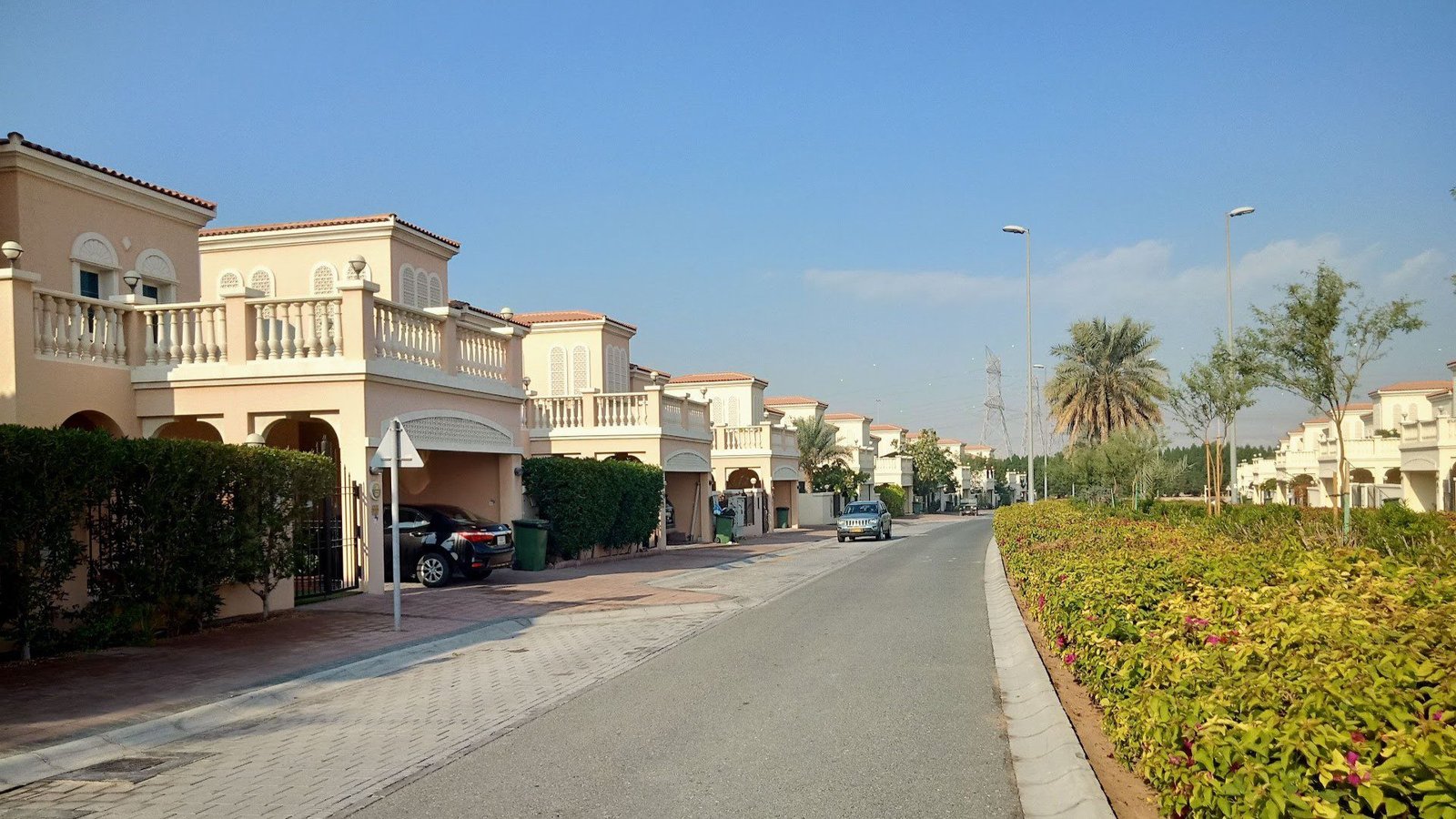Now Reading: UAE Property Inheritance: Secure Future for Your Heirs
-
01
UAE Property Inheritance: Secure Future for Your Heirs
UAE Property Inheritance: Secure Future for Your Heirs

Table of Contents
UAE Property Inheritance: Navigating Critical Legal Pathways
Investing in real estate in the United Arab Emirates offers substantial appeal, not only for its robust market and luxurious properties but also for its favourable tax environment, which notably includes the absence of inheritance tax.1 However, for property owners, particularly non-Muslim expatriates, a clear understanding of the UAE’s inheritance laws is paramount. While the nation has made significant strides in modernizing its legal framework to cater to its diverse population, the default application of Sharia Law, in the absence of proper estate planning, can lead to unintended consequences for property distribution.2
Understanding the default legal provisions, the revolutionary reforms for non-Muslims, and the various options for drafting a valid Will is crucial for ensuring that your UAE property is bequeathed according to your wishes, providing peace of mind for you and your heirs.3
The Foundation: Sharia Law and Its Application

Historically, and still the default for Muslims, inheritance in the UAE is governed by Islamic Sharia Law (primarily based on Federal Law No. 28 of 2005 on Personal Status).4 Under Sharia principles, assets are distributed according to a predetermined formula, which varies based on the gender of the heirs, their relationship to the deceased, and the presence of other family members.5
Key characteristics of Sharia inheritance include:
- Fixed Shares: Specific shares are allocated to primary heirs (eard, or “compulsory heirs”), such as spouses, parents, and children.6
- Male Preference: Generally, male heirs inherit double the share of female heirs of the same degree of kinship (e.g., a son inherits twice the share of a daughter).7
- No Disinheritance: It is typically not possible to disinherit a legal heir under Sharia Law, except in very specific and rare circumstances (e.g., murder of the deceased).
- Application to All Assets: Sharia Law applies to all assets of the deceased in the UAE, including immovable property, bank accounts, and other movable assets.8
- Estate Administration: All assets of the deceased are typically frozen upon death, and formal court procedures are required to administer the estate and distribute assets according to Sharia principles. This process can be lengthy and complex.
For Muslim individuals residing in the UAE, inheritance of their property will almost certainly fall under Sharia Law, unless they have made a specific will (Wasiya) that deviates from Sharia rules, but such a will is generally limited to only one-third of the estate.9 The remaining two-thirds would still be distributed as per Sharia.
A Legal Revolution: Inheritance for Non-Muslims
Recognizing the vast expatriate population, the UAE has implemented significant legal reforms to provide non-Muslims with greater autonomy over their estate planning.10 The most impactful of these is Federal Decree-Law No. 41 of 2022 on Civil Personal Status, which came into effect on February 1, 2023.11
This landmark law fundamentally alters the default inheritance rules for non-Muslims in the UAE. Its key provisions concerning inheritance are:
- Choice of Law: Non-Muslims (both UAE citizens and foreign residents) now have the option to apply the laws of their home country for matters of inheritance, provided they have a registered will to that effect. This is a crucial provision, allowing non-Muslims to bypass the default Sharia distribution.12
- Default Distribution Without a Will (Intestacy): In the absence of a valid, registered will, the new law stipulates a default distribution for non-Muslims that deviates from Sharia:
- Half of the estate (including property) goes to the surviving spouse.
- The other half is divided equally among the children, without distinction between male and female heirs.
- If there are no children, the inheritance devolves to the parents equally.
- Further provisions cover scenarios where there are no spouses, children, or parents, distributing equally among siblings.
- Equality for Children: A significant change is the equal division of assets among children regardless of gender, addressing a common concern for non-Muslim expatriates where their home country laws follow this principle.13
- Broader Scope: This federal law applies across all emirates, providing a unified framework for non-Muslims.
This new law provides a much-needed default for non-Muslims who die intestate (without a will), aligning more closely with Western legal principles. However, even with these beneficial default rules, relying on them implicitly can still lead to complications or distributions that may not perfectly align with an individual’s specific wishes, especially concerning guardianship of minor children, specific bequests, or complex family structures.14 Therefore, making a comprehensive will remains the most robust solution.
Strategic Estate Planning: The Power of a Will

For non-Muslims, drafting and registering a valid will is the most effective way to ensure that their UAE properties and other assets are distributed precisely according to their desires.15 The UAE offers several avenues for registering wills:
1. DIFC Wills Service Centre (Dubai International Financial Centre):16
The DIFC Courts operate a Wills Service Centre that allows non-Muslims to register wills specifically covering their assets in the UAE and, in some cases, worldwide.17
- Jurisdiction: Primarily covers assets in Dubai and Ras Al Khaimah, and can extend to UAE-wide assets if properly drafted. It operates under a common law framework (similar to English law).
- Types of Wills: Offers various wills, including:
- Full Will: Covers all movable and immovable property in the UAE and guardianship of minor children.18
- Property Will: Specifically covers up to five real estate properties.
- Financial Assets Will: Covers bank accounts and financial investments.19
- Guardianship Will: Focuses solely on appointing guardians for minor children.
- Business Owners Will: For shares in UAE-based companies.
- Benefits: Offers legal certainty, is drafted in English, and the probate process is often more streamlined compared to local courts. It’s a popular choice for expatriates due to its familiarity and efficiency. You don’t need to be a UAE resident to register a DIFC Will.20
2. Abu Dhabi Judicial Department (ADJD) Wills Registry:
Abu Dhabi also provides a dedicated service for non-Muslims to register their wills.21
- Jurisdiction: Primarily covers assets within Abu Dhabi.
- Benefits: Provides a legal framework for non-Muslims to define the inheritance of their Abu Dhabi assets.22
3. Notarized Wills at Local Courts (e.g., Dubai Courts):
Non-Muslims can also prepare and notarize a will at a local notary public office, linked to the emirate’s judicial department.23
- Jurisdiction: Covers assets within that specific emirate.
- Benefits: Allows for a direct registration with the local judicial system. The language of the will usually needs to be bilingual (Arabic and English) or translated into Arabic for authentication.24
4. Foreign Wills:
While theoretically possible for foreign wills to be recognized and enforced in the UAE, the process can be highly complex and lengthy. It requires the foreign will to be officially translated into Arabic, legalized by the UAE embassy in the home country, attested by the UAE Ministry of Foreign Affairs and International Cooperation, and then submitted to the UAE courts for validation. Due to potential conflicts with UAE public order principles or difficulties in proving the validity of the foreign law, many legal experts strongly advise creating a separate, specific will within the UAE for local assets.
The Probate Process for Property Inheritance

Regardless of whether a will exists, the inheritance process in the UAE typically involves certain steps:
- Death Notification: Informing the relevant authorities (e.g., police, hospital) and obtaining a death certificate.25
- Asset Freezing: All bank accounts and assets of the deceased are typically frozen upon notification of death.26 This is a standard protective measure and can cause temporary financial complications for dependents.
- Court Application: Filing an application with the relevant Personal Status Court (or DIFC/ADGM Courts if a will was registered there) to initiate the probate process.27
- Document Submission: Providing necessary documents, including the death certificate, proof of kinship (e.g., marriage certificate, birth certificates), and the original will (if one exists and is validly registered). All foreign documents must be officially translated into Arabic and attested.
- Court Orders: The court will issue orders for the distribution of assets based on the will (if applicable and valid) or the relevant intestacy laws (Sharia or the new Civil Personal Status Law for non-Muslims).
- Property Transfer: With the court order, heirs can then approach the respective Land Department (e.g., Dubai Land Department) to transfer the property ownership into their names.28 This process will involve DLD transfer fees, similar to a regular sale transaction.29
The entire process, especially without a clear and well-drafted will, can take several months to over a year, depending on the complexity of the estate, the number of heirs, and any disputes that may arise.
Critical Considerations for Property Owners
- Guardianship of Minors: A will is crucial for appointing guardians for minor children residing in the UAE.30 Without one, local courts will appoint a guardian, which may not align with the deceased parents’ wishes.31
- Mortgaged Properties: If a property is mortgaged, the mortgage does not disappear upon the owner’s death. The bank becomes a creditor to the estate, and heirs cannot inherit or sell the property until the outstanding debt is settled. Life insurance covering the mortgage is highly recommended.
- Business Assets: Shares in UAE-based companies also fall under inheritance laws. Without a clear will, this can disrupt business operations and lead to complications for surviving partners.
- No Inheritance Tax: While there are DLD transfer fees, the UAE does not impose inheritance tax on the value of the inherited property, which is a significant financial advantage.
- Professional Legal Advice: Given the complexities and potential cultural differences, engaging a reputable legal firm specializing in UAE inheritance and wills is highly advisable for both residents and non-resident. They can guide you through drafting a legally sound will and navigating the probate process.
Conclusion: Empowering Your Legacy
The UAE has made substantial strides in modernizing its inheritance laws, particularly for its vibrant non-Muslim expatriate community.35 The Federal Decree-Law No. 41 of 2022 provides a more predictable and often more aligned default for non-Muslims dying intestate.
However, to truly ensure that your UAE property and other assets are distributed precisely according to your wishes, and to prevent potential delays and complications for your loved ones, drafting and registering a comprehensive will with the appropriate authority (such as the DIFC Wills Service Centre or an emirate-specific registry) remains the most robust and recommended course of action.
This proactive step empowers property owners to secure their legacy and provide clarity and peace of mind for their heirs in the UAE’s evolving legal landscape.
WATCH MORE HERE: https://www.youtube.com/watch?v=9gY2RNWlRTM
READ MORE HERE: Unlock Profitable Investments: UAE Real Estate VAT Guide for Investors






















